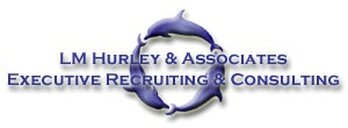2. Ruthlessly block out distractions.
Tennis legend Martina Navratilova says, "I concentrate on concentrating." For those of us who don't have the willpower to be self-accountable, there are several technology solutions for blocking out distractions. For example, Rescue Time is an application that runs in the background of your computer and measures how you spend your time so you can make better decisions. Get Concentrating is another useful tool that will help you focus on important tasks by temporarily blocking social media sites. (Are you easily distracted? If so, here are six more popular programs to block distractions.) 3. Set a strict time limit on meetings. Carlos Ghosn, CEO of Renault and Nissan, is strict on the timing allotted for single-topic, non-operational meetings: He allows a maximum of one hour and 30 minutes. Fifty percent of the time is for the presentation, and 50 percent is for discussion. Gary E. McCullough, former U.S. army captain and now CEO of Career Education Corp., gives people half of the time they ask for a meeting or appointment. This forces them to be brief, clear and to the point. "By doing that, I am able to cram a number of things in the day and move people in and out more effectively and more efficiently," McCullough says. People generally don't need as much time as they ask for. Meetings are time vampires. Be ruthless in managing this endemic productivity drain so you can focus on high value tasks. RELATED: How to Be Productive Working From the Coffee Shop 4. Set up productivity rituals. Tony Schwartz, CEO of The Energy Project, provides four tips for setting up rituals to automate behaviors that will make us more productive, without depleting our energy reservoir. One of them is prioritizing one key task to accomplish per day, and starting your day focused on that task. "Force yourself to prioritize so that you know that you will finish at least that one critical task during the period of the day when you have the most energy and the fewest distractions," Schwartz says. 5. Get up earlier. Research shows that mornings can make or break your day. It's not uncommon for successful CEOs to start their day well before 6 a.m. In 27 Executives Who Wake Up Really Early, we see how incredibly busy people—from Jeff Immelt, CEO of GE, to Indra Nooyi, CEO of PepsiCo—use their mornings to seize the day. Use the mantra "mind over mattress" to motivate yourself to get out of bed to pursue your goals. As Laura Vanderkam says in What Successful People Do Before Breakfast: A Short Guide To Making Over Your Morning—And Life, while many are sleeping in, successful people are already up and getting a lot done. If this is not your preference, Vanderkam advises to start with small steps, such as getting up just 15 minutes earlier every day and gradually increasing the time. 6. Group your interruptions. This idea comes from restaurateur Danny Meyer. He has his assistant group all questions that come up during the day in one list so she doesn't have to interrupt him repeatedly during office hours. Take a cue from this and see how you can ask others on your team to group questions, requests and other non-urgent inquiries so you're not distracted by interruptions that don't add value. 7. Outsource personal chores. Highly productive people are selective about how they expend their energy. They don't waste it on tasks that others can do. For example, Alexis Ohanian, founder of Reddit, uses services such as Fancy Hands, an army of virtual assistants. Others automate grocery shopping with sites such as Amazon's Subscribe and Save, or services that deliver groceries to your doorstep. Others even use services such as Plated, which delivers perfectly measured ingredients for chef designed meals at home. Do a cost/benefit analysis of how you spend your time and see if it's worth offloading some repetitive tasks so you can focus on what will bring value to your company. 8. Set up email rules to maintain sanity. Katia Beauchamp and Hayley Barna, founders of Birchbox, insist that team members indicate when they need a response in all emails. This simple tip helps with prioritization. Designer Mike Davidson has set up an email policy that limits any email he sends to five sentences. As he explains, many email messages in his inbox take more time for him to answer than they did for the sender to write. Analyze your email habits and institute time-saving policies that work for your particular situation. RELATED: What Annoys You at Work Can Actually Boost Productivity 9. Capture all creative ideas. The world renowned scientist Dr. Linus Pauling once said, "The best way to have a good idea is to have a lot of ideas." Most leaders and entrepreneurs are visionaries who generally don't lack good ideas; however, capturing all these ideas is often a challenge for busy people. Evernote is a popular, free program for collecting ideas. (Here's a list of other tools to consider.) 10. Increase your effectiveness through technology. There's a wealth of programs to make a small-business owner more effective in increasing productivity. A few popular tools—some of which are free—include Dropbox to store files online; Any Meeting to host a webinar; Basecamp for project management; Trello for keeping track of projects and deadlines, and Hootsuite or Buffer to schedule your social media postings. 11. Don't lose it: Read it later.Don't miss out on important information because you're in a rush and have no time to read. Two programs help you scoop information to read later. Get Pocket allows you to put articles, videos and any other information into a virtual pocket, saved directly from any site. Another worthwhile program is Instapaper, which allows you to save long Web pages to read later when you have time. 12. Learn from others. Consider subscribing to Lifehacker's How I Work series, which asks highly successful people to share their best time-saving tips. For example, Eric Koger, founder of ModCloth, shares his nerdiest way to save time: His keyboard layout is Colemak. Learning Colemak is a one-time investment that allows for much faster typing. This site provides an abundance of advice on how super busy, successful entrepreneurs salvage time. Read more productivity articles. Author: Bruna Martinuzzi, founder of Clarion Enterprises Ltd.,and the author of two books: Presenting with Credibility: Practical Tools and Techniques for Effective Presentations and The Leader as a Mensch: Become the Kind of Person Others Want to Follow Comments are closed.
|
Senior Living Recruiting is what we do.AuthorLM Hurley & Associates Executive Recruiting Archives
October 2023
Categories |

